Congratulations to the winners of the 2025 European Social Services Awards
Delivering future-proofed social services is key to breaking cycles of disadvantage, the 2025 Awards recognised the organisations and people that are rethinking their services to provide impactful, long-term solutions for the people and communities they support.
Coinciding with the 25th anniversary of the European Social Network, this year's edition of the Awards was particularly meaningful as we commemorated 25 years of promoting lasting change in social services.
The winners were announced at the Awards Ceremony on 13 November 2025 in Madrid, Spain.
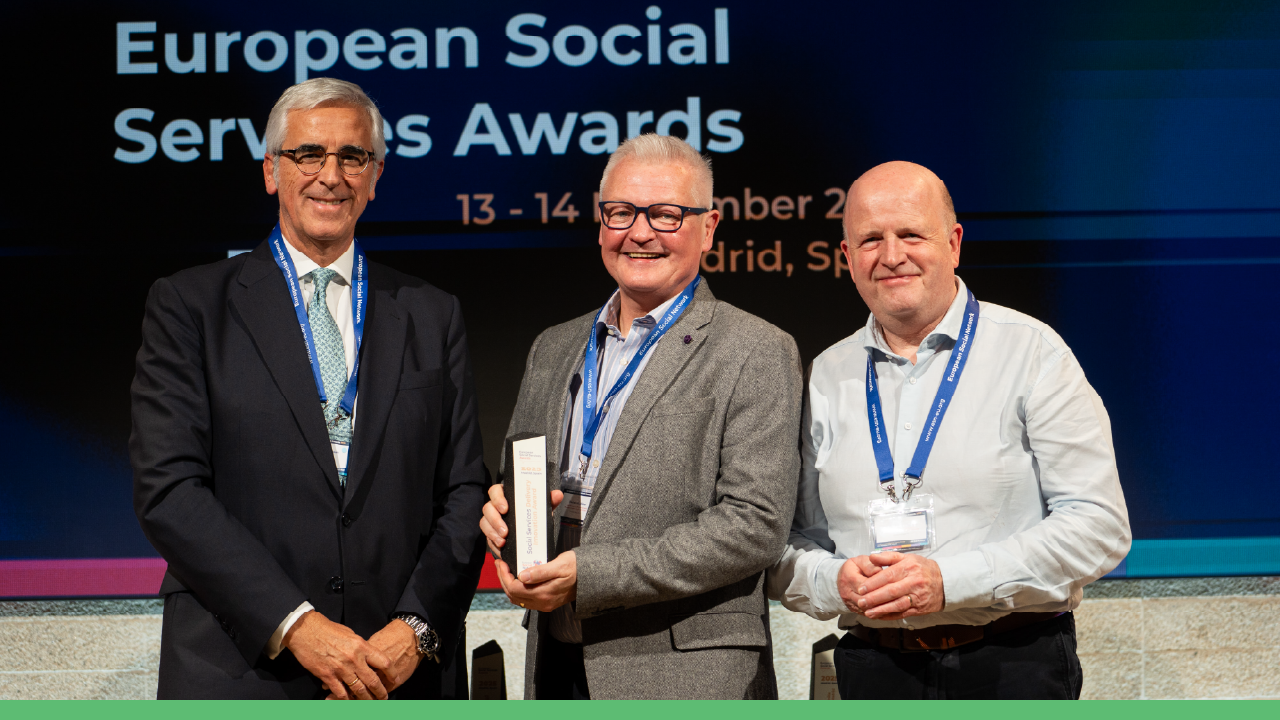

Social Services Delivery Innovation Award
Title: “Elevating Standards: A Journey through Care in Practice”
Organisation: Northern Ireland Social Care Council, United Kingdom
More information: https://niscc.info/
The CiP Framework is a transformative initiative designed to support the professional and career development of over 41,000 social care staff working across the life course including supporting those with complex and/or additional needs. It addresses key sector challenges enabling a workforce to be valued, supported and trained. The Framework offers two interlinked pathways—one for qualifications and one for continuous professional learning—building knowledge, skills and values. The pathways support delivery of safe, compassionate care, provide clear routes for career progression and foster a culture of lifelong learning.
The Framework includes a new entrance level qualification that helps staff acquire the basics needed to provide safe and compassionate care. A recently launched CiP interactive web resource has already engaged over 7,000 users, with early feedback showing strong endorsement from employers and staff. The Framework is helping to shape a stronger, more confident, capable, and better prepared social care workforce.
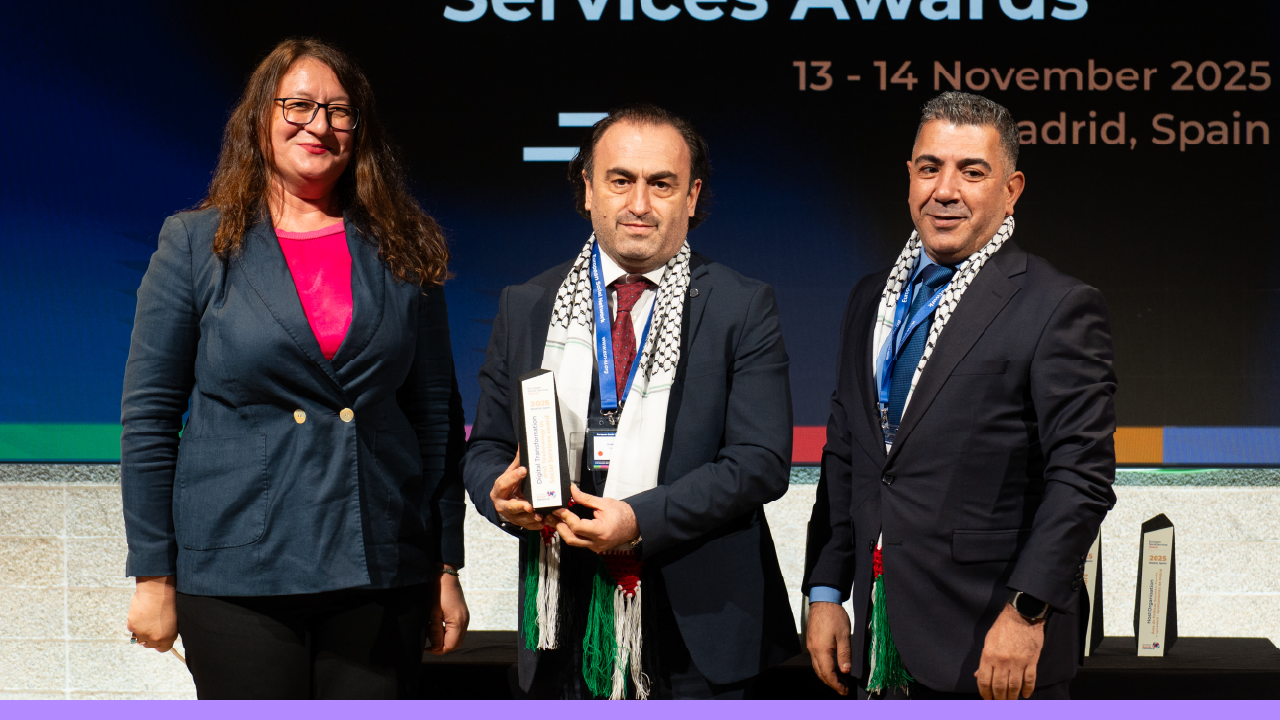

Digital Transformation and Technology in Social Services Award
Title: “Bağ-Kart: A Digital Model for Efficient and Inclusive Social Assistance”
Organisation: Bağcılar Municipality and Istanbul Bakers' Association, Türkiye
Website: https://www.bagcilar.bel.tr/
Bağcılar Municipality is carrying out work on developing new social support models for the more effective and efficient delivery of social assistance. With a data municipalism approach, Bağcılar Municipality has developed new social support models and, in order to provide assistance in a systematic and innovative way, has integrated social support services with BağKart—a tool of the Digital Citizenship Project that creates a digital link between the municipality and citizens—and ensured the transition from a demand-based to a supply-based understanding of social support.
Within this digital business model, households in need are identified through data, and before the need even arises, access to social assistance is enabled through a physical card, mobile application, or web portal. Beneficiaries can choose products according to their needs from the Social Market, Charity Bazaar, or contracted bakeries. Each stage of the process is supported by short message (SMS) notifications, and during the 2023–2025 period, social support was provided with the delivery of 147,115 products from the Charity Bazaar to 29,134 households, and approximately 1,483,927 products from the Social Market to 42,524 households. The contributions of sponsors and philanthropists have strengthened the process, while the cooperation of the Istanbul Chamber of Bakers has supported the dissemination of the model at the neighborhood scale.
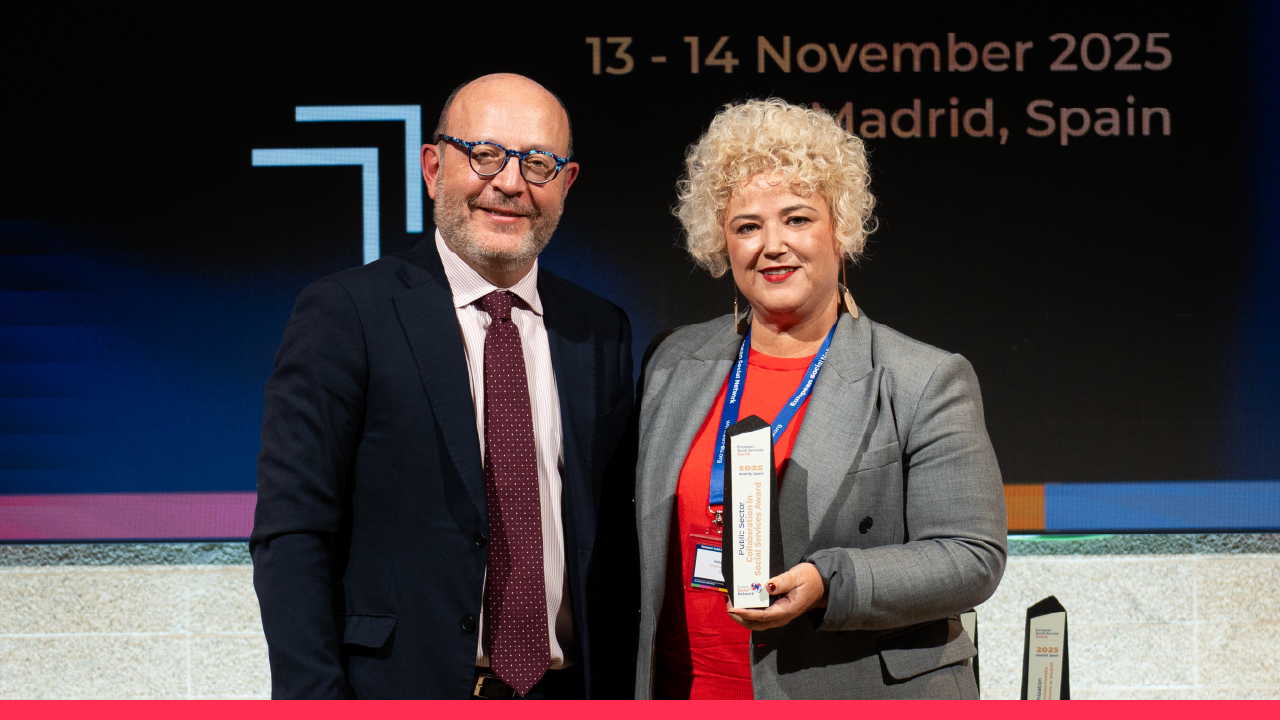

Public Sector Collaboration in Social Services Award
Title: “Local Care Ecosystem”
Organisation: Department of Care and Social Policy - Provincial Council of Gipuzkoa (Spain)
More information: https://www.zaintzaherrilab.eus/es/ https://www.eipa.eu/epsa/cenpos-project/
The Local Care Ecosystem (LCE) is a territorial strategy developed in the Province of Gipuzkoa (Spain), to strengthen local public systems and improve the quality of life of frail and dependent older people who wish to remain at home. It addresses the unsustainability of traditional care models by promoting collaborative governance, personalised care itineraries, and integrated networks linking social, health, and community services. Implemented in 18 municipalities within the Gipuzkoa Zaintza Lurraldea 2030 strategy, the LCE engages 1,202 frail individuals, 167 families, 124 caregivers, and 240 organisations.
Supported by the Provincial Council, municipalities, the Basque Government, and EU funding, the project has demonstrated measurable impacts: enhanced user satisfaction, improved professional coordination, and greater accessibility to services. Key innovations include local governance structures, federated data platforms for cross-sector coordination, and structured scaling tools (Zaintza Scaling Hub). The LCE offers a scalable, transferable model to advance integrated, person-centred care and address Europe’s ageing challenge.
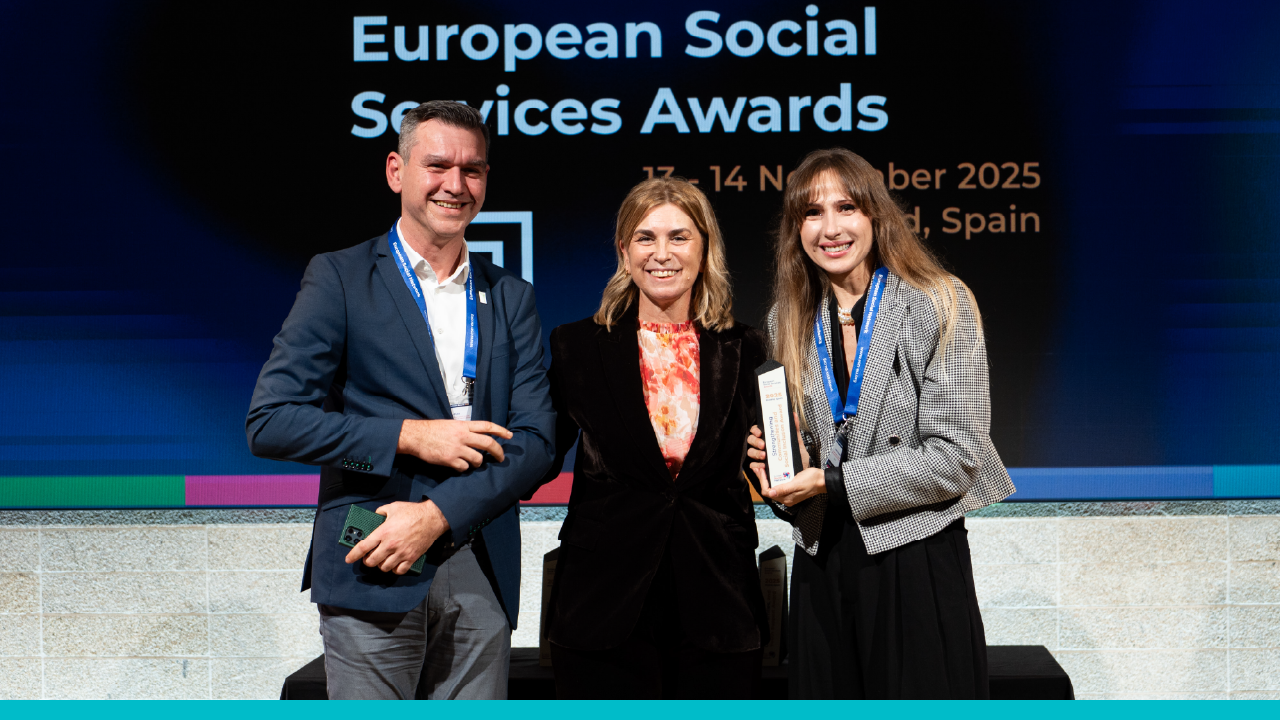

Strengthening Communities and Social Inclusion Award
Title: “Bucharest's 6th District Local Food Bank”
Organisation: Bucharest 6th District City Council - General Directorate for Social Care and Child Protection, Romania.
More information: Local Food Bank 6th District, Bucharest, Romania
The 6th District Local Food Bank turns surplus food into a resource for vulnerable families, tackling hunger, waste, and environmental impact at once. By working with farmers, retailers, and local groups, it lowers support costs, brings communities together, and raises awareness about sustainable food practices. More than a food bank, this multifunctional hub prepares over 2,500 meals daily, delivers food to vulnerable groups, and runs educational, life-skills, and zero-waste programmes. It combines social inclusion, food waste reduction, and environmental sustainability, serving as a model for other communities in Romania and beyond.
The main impact of the 6th District Local Food Bank has been the large-scale reduction of food waste while significantly improving food access for over 5,000 vulnerable individuals and families. From December 2024 to May 2025, it distributed over 200 tons of food, valued at more than €600,000, providing 30,000+ meals through a social canteen, 100,000+ hot meals to students, and 22,000 food packages to homebound individuals.
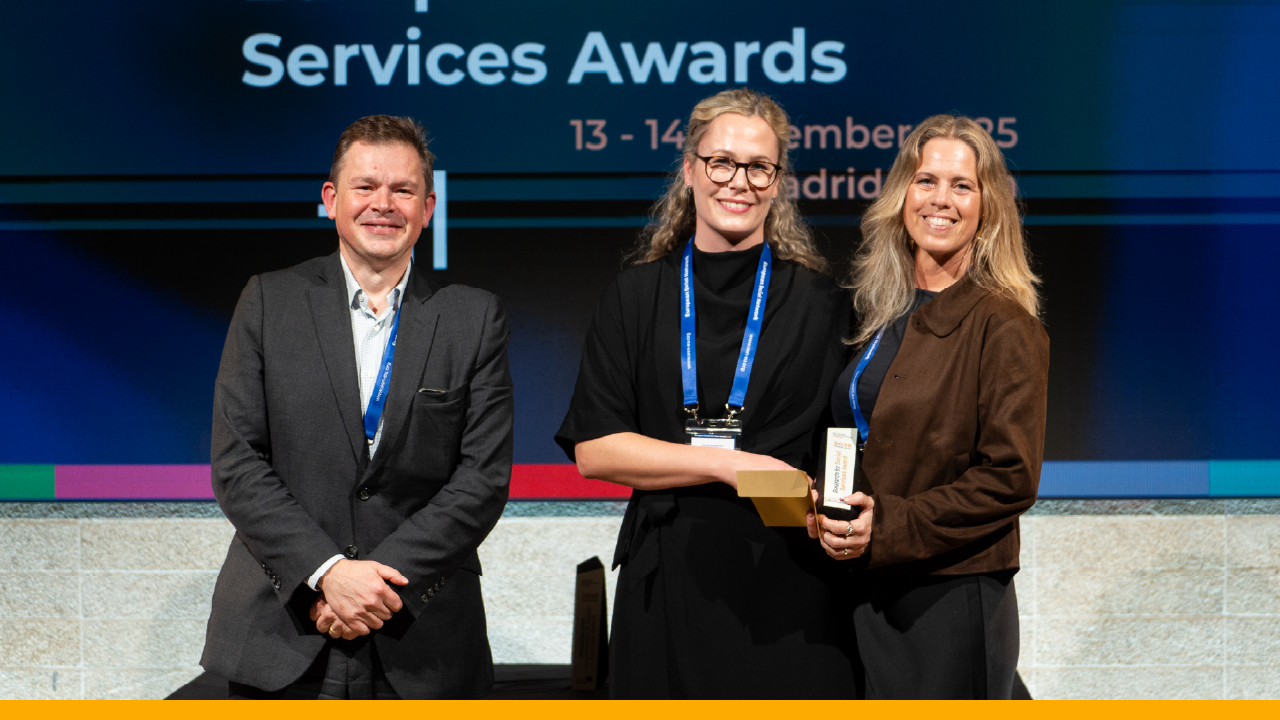

Research for Social Services
Title: “NUSO – National Follow-up of the Social Services Transition”
Organisation: The Swedish Association of Social Services Directors (FSS), The Swedish Association of Local Authorities and Regions (SALAR) and Karlstad University (KAU), Sweden
More information: Nuso | Project Page
Sweden’s social services have long lacked a unified documentation system and national structure for information management, limiting collaboration, statistics, and meaningful comparisons. To address this, the Swedish Association of Local Authorities and Regions (SALAR) and Karlstad University (KAU) launched NUSO (National Follow-up of the Social Services Transition).
NUSO is a pioneering research and development initiative combining systematic follow-up with research to build knowledge ahead of the new Swedish Social Services Act (effective July 2025) and to monitor reforms over time. Its focus areas include accessibility, preventive work, equality, and evidence-based practice. Initial work has centred on child welfare, revealing disparities: older children and those with Swedish backgrounds receive more interventions, while children’s voices are often under-documented.
NUSO’s impact is evident in three areas: widespread local, regional, and national development initiatives; new insights into conditions for national-level monitoring; and the creation of a national research network linking municipalities and universities in practice-oriented collaboration.
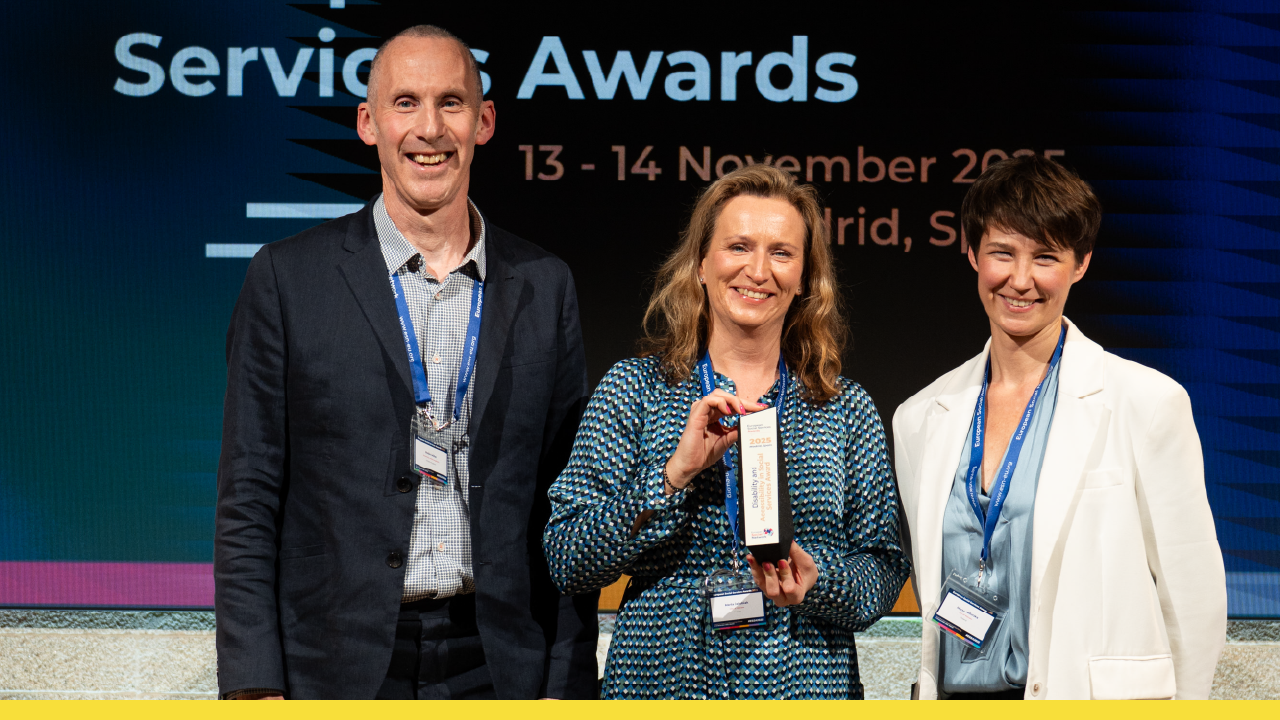

Disability and Accessibility in Social Services Award
Title: “Active Every Day”
Organisation: City of Warsaw, Poland
More information: https://en.um.warszawa.pl/
The City of Warsaw has created and implemented the ‘Assistant to a Person with a Disability’ Programme to strengthen the autonomy and self- realisation of people with disabilities. The City offers services to support people with disabilities with daily life activities, including personal assistant services, free citywide rehabilitation equipment rental service and specialised door-to-door transport services. The city supports its residents in overcoming barriers and provides concrete solutions that make it easier to function in different areas of life.
The services are aimed at people with motor, sensory and intellectual disabilities who have a moderate or severe degree of disability. The city also provides access to an online or live sign language interpreter for people who are deaf or hard of hearing. The city conducts ongoing monitoring of the assistant services provided, allowing residents to provide feedback on each of them. Approximately 4,000 people benefit from these services annually.
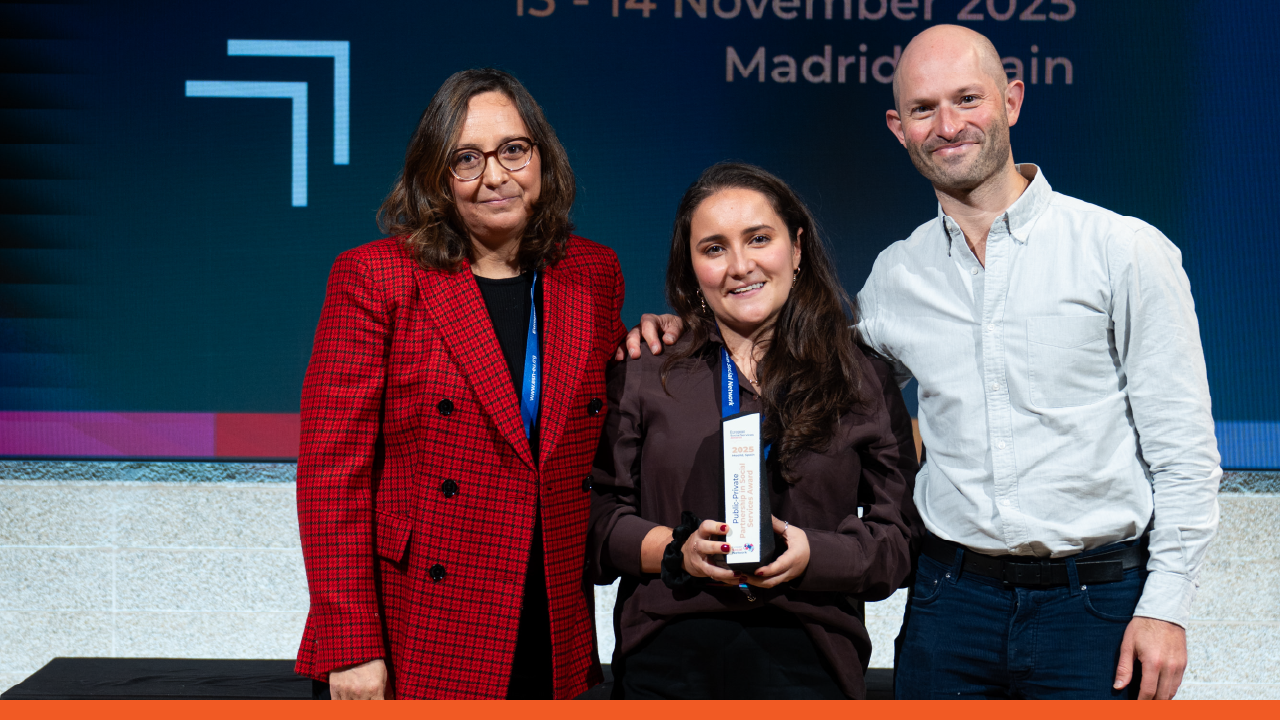

Public-Private Partnership in Social Services Award
Title: “Empowering Social Workers with AI at Dumfries and Galloway Council”
Organisation: Magic Notes in partnership with Dumfries and Galloway Council, UK
More information: https://www.dumfriesandgalloway.gov.uk/
Dumfries and Galloway Council and Beam are working in partnership to transform the delivery of social work services through Magic Notes, Beam’s flagship AI tool.
Developed with and for frontline caseworkers, Magic Notes automatically generates tailored case notes, reports, and documentation, saving social workers an average of 8 to 12 hours per week in administrative tasks. By reducing paperwork, the tool enables staff to focus on what matters most: providing direct care and support to individuals and families.
To safeguard professional standards, Magic Notes incorporates a strict human-in-the-loop policy. The collaboration has already had significant impact: more than 1,000 people in Dumfries and Galloway now use Magic Notes, and none have expressed a desire to return to manual note-taking.
Together, Dumfries and Galloway Council and Beam are demonstrating how a strong public-private partnership can ease the administrative burden on frontline staff, improve working conditions, and support retention in the social work profession. By aligning cutting-edge technology with the council’s commitment to responsive, human-centered services, this partnership is setting a new standard for innovation in social care.
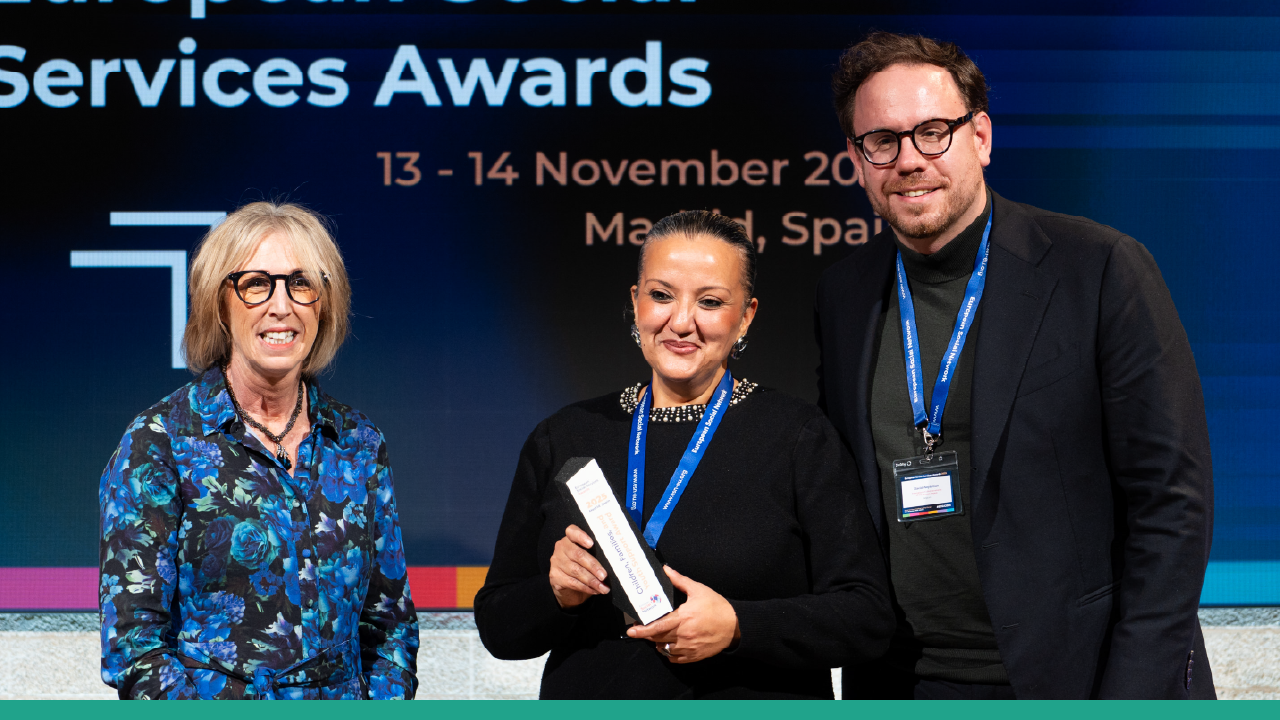

Children, Families, and Youth Support Award
Title: “The Miriam Project”
Organisation: CPAS (Social Services of Brussels City), Belgium
More information: https://www.mi-is.be/nl/miriam
The Miriam Project addresses the multiple difficulties single mothers and their children face, particularly children between 0 and 6 years old, from impoverished environments, with low education level or with a migrant background in the city of Brussels. These households are particularly exposed to social exclusion, housing instability, mental health issues and difficulties accessing the job market and childcare, which deeply affects children’s development.
The project addresses these difficulties by intervening with a person-centred and holistic approach which brings together in one single framework support in housing, mental health, legal assistance, labour orientation, early childhood education and peer network support. A multidisciplinary team provides them personalised support, fostering the economic independence of the mothers as well as a safe and protective environment for the children.
As of now, dozens of families have already been reached. Feedback from both participants and professionals shows a notable reduction in social isolation, greater emotional resilience, and increased engagement with rights and available services. Case managers report growing trust and long-term engagement from families, particularly in the areas of early childhood support and employment pathways.
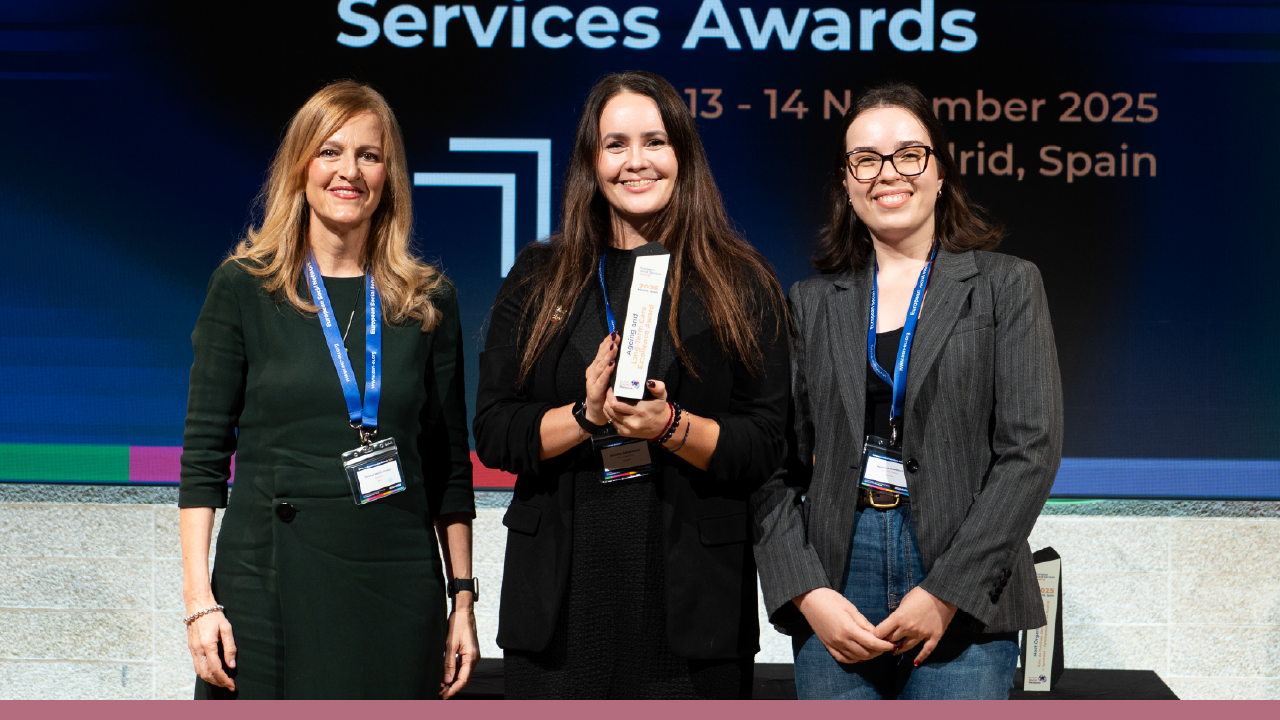

Ageing and Long-Term Care Excellence Award
Title: “Connecting Generations through Fairy Tales”
Organisation: Fabijoniškės Social Services Home (Vilnius City Council), Lithuania
More information: https://vilnius.lt/
This project addresses loneliness and social exclusion among older people and persons living with dementia by creating meaningful intergenerational connections. Seniors, supported by youth volunteers, regularly visit kindergartens in Vilnius, Lithuania, to share fairy tales and life experiences, fostering imagination, empathy, and respect among children.
These sessions provide seniors with a renewed sense of purpose, challenge stereotypes about ageing, and help young volunteers develop social sensitivity and communication skills. The activity also strengthens community ties by bringing together three often disconnected groups: older people, young volunteers, and preschool children.
Feedback shows strong positive impact: over 90% of children express joy after sessions, educators report improved emotional openness and language skills, and seniors describe the experience as “a breath of life.” Since its launch, the project has involved 16 seniors, visited 14 kindergartens, and directly reached around 400 people.
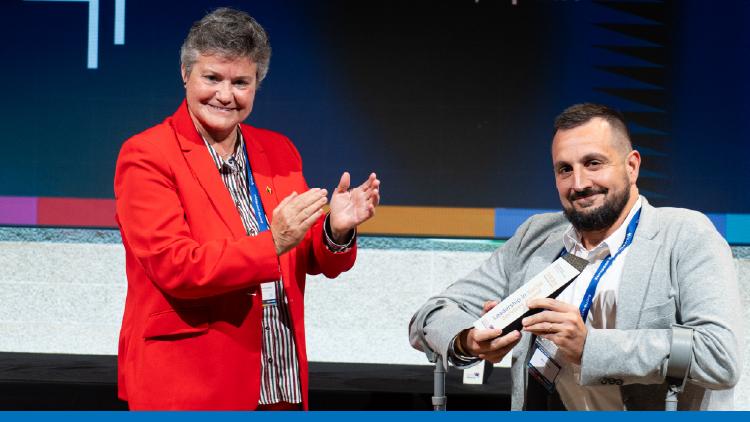
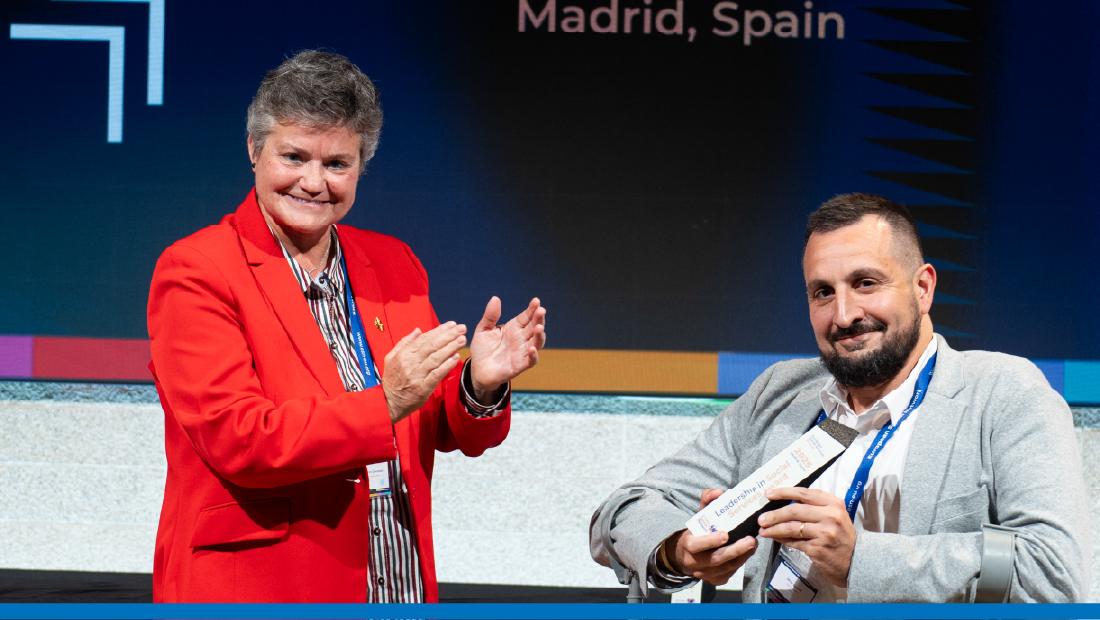
Leadership in Social Services Award
Title: “Transforming Disability Services in Malta - Oliver Scicluna”
Organisation: Agenzija Sapport, Malta
More information: www.sapport.gov.mt
Malta’s disability sector was once shaped by institutional models that restricted autonomy and inclusion. Under the leadership of Oliver Scicluna, CEO of Agenzija Sapport, a major shift has taken place toward deinstitutionalisation and rights-based, community-focused support. He has embedded the principles of the UN Convention on the Rights of Persons with Disabilities (UNCRPD) into service provision, ensuring care models now prioritise dignity, independence, and co-production with service users.
Structural reforms such as the Personal Assistance Scheme, the Independent Community Living Scheme, and the Deinstitutionalisation Board have empowered persons with disabilities to design their own support plans and live independently within their communities. Alongside these initiatives, Mr. Scicluna has driven improvements in infrastructure, expanded funding for tailored home-based services, and advanced new legislation on the rights of vulnerable adults. His vision has brought about systemic and sustainable change, positioning Malta as a strong model for inclusive disability services.